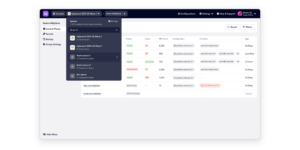Upbound Adds Console to Centralize Management of Crossplane
Upbound this week made available an update to the open source Crossplane project that adds a console that makes it possible to centrally manage multiple implementations of control planes.
In addition, Crossplane can now be automatically upgraded as future iterations of the platform become available.
Finally, application programming interfaces (APIs) for identity management, shared secrets and backups have been added to make it simpler to streamline management and security workflows across a distributed computing environment.
Oren Teich, chief product officer for Upbound, said as more organizations look to centralize the management of IT they are discovering how Crossplane extends the control plane originally developed for Kubernetes clusters to other IT environments. Organizations that have adopted Crossplane in the last year include Deutsche Kreditbank, Gameloft, Millennium bcp and Variphy.
Control planes provide an alternative to relying on custom scripts to make changes more consistently to IT environments at scale using a higher level of abstraction. The single biggest thing distinguishing cloud service providers from enterprise IT organizations today is that the former invested in building out a control plane to streamline the management of the application programming interfaces (APIs) exposed by IT infrastructure providers.
More IT organizations are clearly looking to unify the management of IT environments by reducing the number of diverse management platforms they have in place today with a set of control planes that can be deployed from the edge to the cloud more consistently using a single integrated console, said Teich.
In effect, the management of distributed computing environments is becoming more federated. That’s crucial because the more distributed IT environments become, the more apparent it is legacy approaches to managing IT platforms will not prove to be extensible enough, he added.
That approach also helps reduce the total cost of IT when compared to relying on IT management platforms typically licensed from multiple IT vendors.
In many cases, platform engineering teams that are at the forefront of the effort to implement control planes. Most of those efforts are confined to small teams, but as they expand the number of control planes being deployed will steadily increase as IT teams gain more experience using them, noted Teich.
It may be a while before control planes are ubiquitous, but as IT environments continue to evolve there is no doubt higher levels of abstractions will be needed. Even in the age of artificial intelligence (AI) there will not be enough programming expertise to manage distributed computing environments without the aid of IT administrators that typically lack coding skills. Control planes provide a mechanism to converge the best of DevOps and IT service management (ITSM).
In the meantime, it’s certain IT environments will become even more complicated than they already are. With the rise of multiple types of cloud-native applications alongside existing monolithic applications, the need for a new approach to managing distributed IT environments becomes that much more acute. It’s not so much whether IT leaders will need to address this issue as much as it is simply when.



